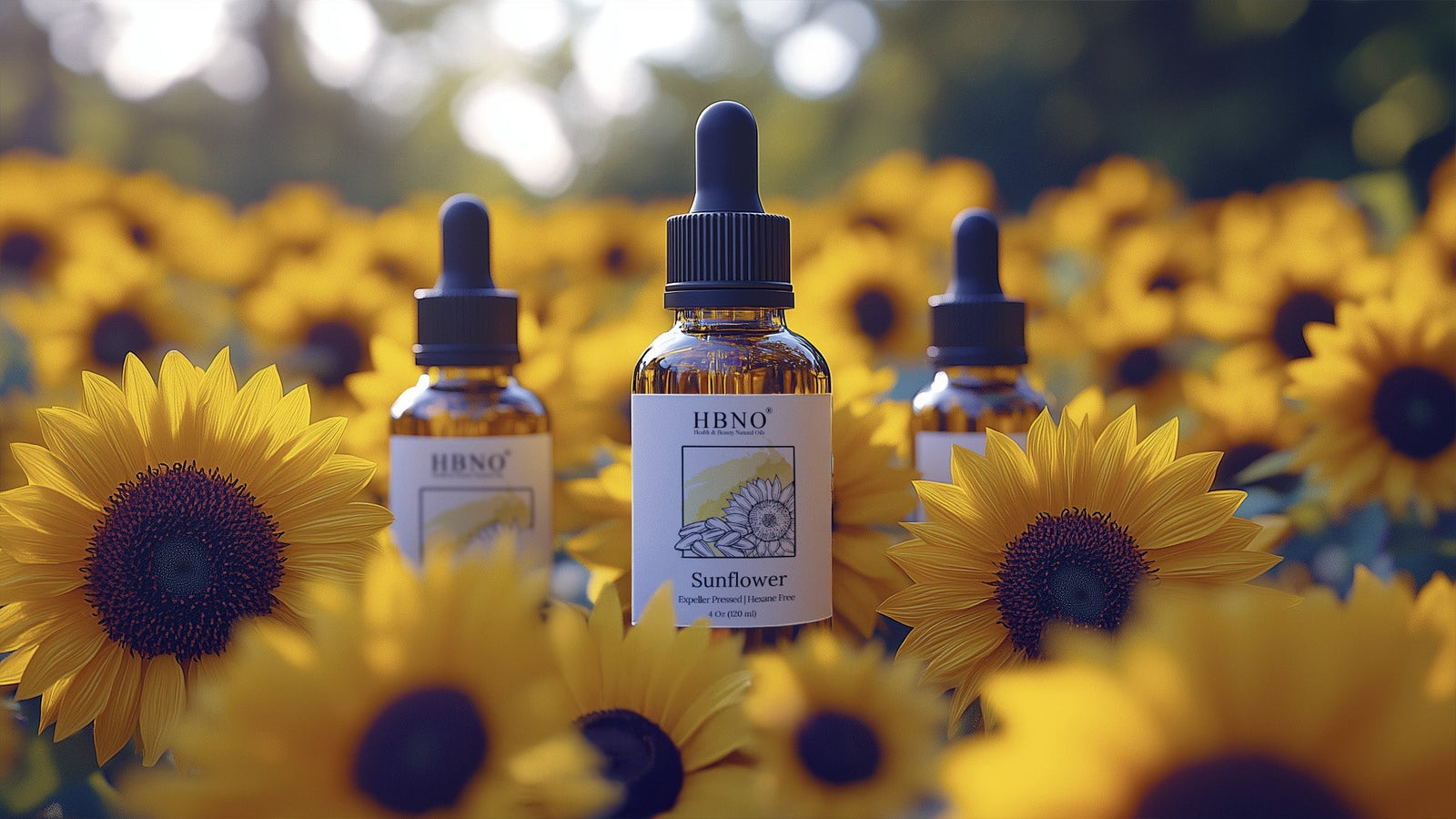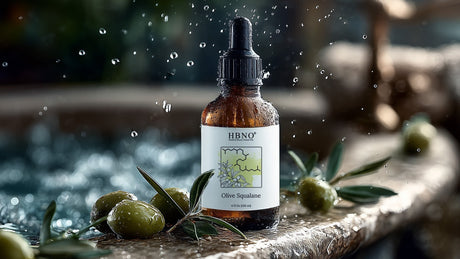Organic Sunflower oil is one of the most commonly used oils in the world, valued for its versatility in both culinary and cosmetic applications. Whether you're frying, baking, or nourishing your skin, sunflower oil-available in both refined and unrefined forms-offers a wide array of benefits.
Choosing between refined vs. unrefined sunflower oil depends on your intended use, whether it be high-heat cooking or natural skincare. Each variant has distinct qualities that make it suitable for different needs, from food flavoring and high smoke point to nutrient retention and natural aroma.
Refined vs. Unrefined Sunflower Oil: Key Differences
1. Processing Method
The main difference between refined and unrefined sunflower oil lies in how each is processed.
-
Refined Sunflower Oil goes through a multi-step industrial process that includes degumming, neutralization, bleaching, and deodorization. This results in an odorless, colorless, and more shelf-stable oil with a higher smoke point. One subtype is Refined RBDW Sunflower Seed Carrier Oil, which stands for "Refined, Bleached, Deodorized, Winterized"-this variant is especially prized in cosmetic manufacturing due to its neutral properties.
-
Unrefined Sunflower Oil, on the other hand, is usually cold-pressed and minimally processed. This allows it to retain most of its natural nutrients, including antioxidants and fatty acids, along with a distinctive aroma and deeper golden color.
2. Smoke Point and Stability
-
Refined Sunflower Oil has a high smoke point (around 440°F or 227°C), making it ideal for high-heat cooking like frying, grilling, or roasting. Because it's more stable, it also has a longer shelf life, making it a popular choice for commercial kitchens and packaged food products.
-
Unrefined Sunflower Oil has a much lower smoke point (around 320°F or 160°C) and is less stable. It's best used for salad dressings, low-heat sautéing, or as a finishing oil to retain its nutritional value and flavor.
Nutritional Profile
Both types of sunflower oil contain healthy fats, but the refining process significantly impacts their nutrient density.
-
Refined Sunflower Seed Oil is stripped of some of its original vitamins and antioxidants during processing. It still retains a good amount of oleic and linoleic acids-types of polyunsaturated fats that support heart health-but in slightly lower concentrations.
-
Unrefined Sunflower Seed Oil retains a higher concentration of vitamin E, sterols, and other bioactive compounds. These nutrients contribute to skin repair and anti-aging benefits when consumed in moderation.

Sunflower Seed Carrier Oil in Skincare
Sunflower Seed Carrier Oil is widely used in personal care and cosmetic formulations for its gentle, nourishing properties. Both refined and unrefined versions have their uses, depending on the product's goals.
-
Refined RBDW Sunflower Seed Carrier Oil is often the preferred choice for formulators who want a neutral base with a longer shelf life and no scent. It blends easily with essential oils and is excellent for lotions, creams, balms, and serums. Because it is light and non-greasy, it absorbs quickly into the skin without clogging pores.
-
Unrefined Sunflower Seed Oil provides extra nutrients like beta-carotene and unaltered vitamin E. It is often used in more natural or organic products where the oil's golden hue and natural aroma add to the product's appeal. It's ideal for dry, sensitive, or mature skin due to its deeply moisturizing and anti-inflammatory properties.
Uses in Hair and Scalp Care
Sunflower Seed Oil also excels in hair care. Whether used refined or unrefined, it offers several benefits:
-
Moisturizes the scalp and soothes irritation.
-
Strengthens hair and helps reduce breakage.
-
Adds shine and smoothness to dry or frizzy hair.
-
Works well as a carrier oil in hair masks when mixed with essential oils like rosemary essential oil or peppermint essential oil
Unrefined oil is usually richer and better suited for deep-conditioning treatments, while refined oil is often used in leave-in products or light serums.
Which One Should You Choose?
When deciding between refined vs. unrefined sunflower oil, it helps to match the oil to its intended use:
For Cooking:
-
Refined Sunflower Oil is your best option for frying, roasting, or baking due to its high smoke point and neutral flavor.
-
Unrefined Sunflower Oil is more suitable for salad dressings, dips, or drizzling over finished dishes to retain its nutrients.
For Skincare and Cosmetics:
-
Refined RBDW Sunflower Seed Carrier Oil is ideal if you want a stable, odorless base for lotions, serums, or massage oils.
-
Unrefined Sunflower Seed Carrier Oil works best for nutrient-rich, all-natural skincare formulations.
Safety and Storage Tips
-
Storage: Both types of sunflower oil should be stored in a cool, dark place. Unrefined oil, being less stable, is more prone to oxidation and should be used within a shorter period.
-
Shelf Life: Refined sunflower oil can last 12-18 months unopened, while unrefined oils typically last 6-12 months.
-
Skin Sensitivity: Always conduct a patch test when using any oil for the first time, especially unrefined versions, which may contain naturally occurring allergens.
Conclusion
When comparing refined vs. unrefined sunflower oil, each type serves a distinct purpose. Refined RBDW Sunflower Seed Carrier Oil is ideal for high-heat cooking and cosmetic formulations, while unrefined sunflower oil retains more nutrients, making it perfect for low-heat culinary use and natural skincare.
HBNO Bulk offers both refined and unrefined sunflower oils in bulk, allowing you to choose the right option for your business or personal needs. Whether you're formulating skincare products or stocking a kitchen, HBNO's quality ensures you make an informed, effective choice.
Choose an experienced Private Label Product Manufacturer offering turnkey solutions for your brand.




